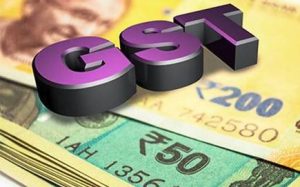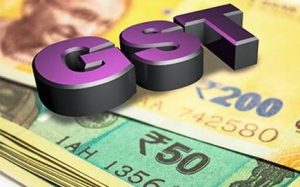Coca-Cola India’s packaging accomplice Hindustan Coca-Cola Beverages (HCCB) and wholesalers of FMCG and buyer tough firms have gone under the focal point of the merchandise and ventures charge (GST) specialists over alleged post-deal limits offered by makers, said an individual acquainted with the issue. The specialists have inquired as to why GST was not paid on these limits, regarding them as administrations by wholesalers. Now and again, experts have looked for deals subtleties for as far back as five years from wholesalers. That is puzzled the business for which such discounts are normally used to advance deals, inciting it to campaign the administration for help.
A representative for HCCB, which represents 66% of Coca-Cola India’s volumes, said the organization works in full consistency with guidelines. It is basic to take note of that none of the past appraisals, nor the legal points of reference on this issue, have regarded the said costs as being in the idea of any ‘administration’ rendered by the wholesalers to the organization, an HCCB representative said in an email. HCCB kept on working together on a similar premise and henceforth kept on treating markdown plans, deductible from the incentive on which GST is leviable, as a supply of merchandise, the representative said. The organization has met Directorate General of Revenue Intelligence authorities and introduced its contentions regarding the matter, he said. We are remaining by for any further elucidations and exchanges that might be required, the representative said.

As respects the dispute of the Directorate General of Goods and Services Tax, HCCB offers to its merchant’s different sorts of limits, cost offs, rate refunds and advancements under different plans and terminologies to advance the closeout of items (alluded to as rebate plans). These appear as extra edges, stipends and redistribution edges identified with volumes. They are independently given as credit notes, on which GST isn’t paid. Duty experts have scrutinized the limits, calling them sponsorships. Their dispute is this turns into a piece of the thought in the hands of wholesalers, expecting them to make good on regulatory expense on a higher sum.
Expense specialists can’t help contradicting this conflict. On a very basic level, the nature of markdown doesn’t change premise the GST modification and where the exchanges occur on a vital to the primary premise, there is not really any extension for administrations given by the vendor to the maker, said Pratik Jain. Regardless, regardless of whether GST is required, it would to a great extent be income impartial as the producers will be entitled to info credit, Jain included. The business has told the legislature that post-deal limits ought not to be treated as a thought for administrations given by merchants to makers.
They additionally need the consideration of post-deal limits in any sum paid by the makers to merchants or retailers for the decrease in the cost of items, in accordance with the plans offered by the producer to advance deals. In a perfect world, the sums passed on to sellers and wholesalers are only post-deal limits which are obviously secured under the credit note arrangements. The charge that these sums speak to an administration appears to be indefensible, said Rashmi Deshpande, accomplice, Khaitan, and Co. These cost offs reached out to merchants by virtue of decrease in costs of items are absolutely in the idea of post-deal limits and treatment of such limits as a ‘sponsorship’ isn’t in consonance with the arrangement of law.

